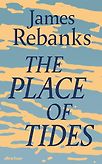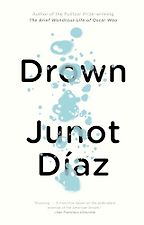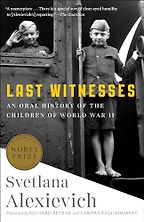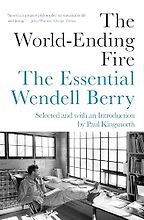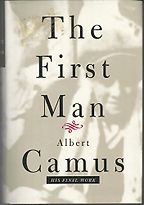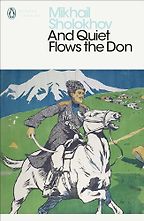Thank you so much for putting together this list of modern classics, relatively recent books that will stand the test of time. Perhaps we should start by defining our terms more precisely; ‘modern classic’ can be a baggy concept, how have you chosen to interpret it?
To me ‘modern classic’ means a book that earns the right to sit next to the Penguin Modern Classics with those light green/blue spines that I revered as a teenager and young writer. It’s entirely subjective, of course, but that’s the beauty of books, we the reader are the authority, the sole authority, and the only authority. For me that means books that are totally at the top of their genre, or that say something vital. In short, the really good stuff.
What do you look for in a book?
I suppose I look for two things in a great book: great writing skill, technical brilliance if you like, or a soaring imagination, but also how the book makes me feel, particularly if it makes me feel things deeply. There are a lot of books that do other noble and necessary things, but I revere great books for those reasons.
I’m not bothered about okay and simply ‘good’ books, life is too short and there’s a lot to cram in before you die, so I want to read the very best books ever written.
The first book you have chosen to recommend is Junot Diaz’s Drown, a collection of short stories. Why is this a modern classic?
It is the best book he has written. It is one of the best books anyone has written in recent decades. It takes us, the readers, in to a world we would not otherwise know, that of a Dominican immigrant kid to the States. And does that with a dazzling technical brilliance that few writers have. For example, in one story we learn that the family keep their photos under the bed in a plastic sleeve, and we realise this is because of the humidity in their impoverished and damp-ridden home. The detail is tiny but it tells you more about their poverty than pages of explanatory text.
Drown was Diaz’s debut; he’s better known for the Pulitzer Prize-winning book that followed, The Brief Wondrous Life of Oscar Wao.
I have read his other books. They are good, but this is the purest and best thing he has done.
I’m also intrigued by your second book recommendation, Nobel Prize-winner Svetlana Alexievich’s The Last Witnesses. I know her oral histories The Unwomanly Face of War and Chernobyl Prayer, but not this. Does it take similar form?
Any of her books could take this one’s place on this list – her whole body of work is brilliant, and totally diminished by people calling it ‘social history.’ Her skill is way bigger than that. She is one of the greatest writers of our age. This is an early work, recording and retelling the stories of elderly Soviet citizens about the days in the Second World War when the war reached their villages. Children’s memories of hell being unleashed. It is the most beautiful, brilliant, heartbreakingly sad book I have ever read. My friend Casiana at Penguin publishes her work and I beg for each work as they are translated, like I am a drug addict.
Why so?
I’ve always felt that if we are to try and add to the canon of fine writing, we should be aware how good the best stuff is. For me that means reading the best writers in the world of the past and the present, and trying—perhaps in vain—to raise our efforts to their level.
Svetlana Alexievich is on the top rung of the literary latter in our age. I am a bit indifferent to most English writing or reading just from one genre, as I feel like we are missing the good stuff for something familiar and local. I want to go wherever in the world great writers take me, and to have my beliefs shaped and changed by their poetry. I love books by authors that see the world differently to me.
Your third modern classic is Wendell Berry’s book The World-Ending Fire, a collection of essays. Tell us about it.
If you care about food, farming and the environment then you really have to read and understand this book and Wendell Berry’s work. His brilliance was to see, before most other people, what modern agriculture did to rural communities and farming cultures and what terrible havoc it would wreak.
He was a prophet, calling it in the 1960s and 1970s, and it’s all a little sad, because when I met and became friends with him, he felt he had lost, that it had all happened as if he’d never written a word.
He’s also a very, very good writer of essays as shown in this collection.
The Guardian once described Berry’s work as a “half-century campaign on behalf of old-style US agrarianism, the sanctity of the dairy farm and the sharecropper’s 40-acre plot.” I suppose he argues in favour of the simpler life, one spent in closer relationship with the land. Is that how you see it?
I am an agrarian radical. Proud to be one.
I don’t think it is about harping back to a simpler life per se, but a life that would be genuinely meaningful and sustainable. If the modern industrial-consumerist world was a viable project, then he’d be seen as a daydreamer, but it isn’t, and he’s one of its clearest-eyed critics.
I think agrarian radicals are some of the most powerful critics of modernity, and offer some of the most convincing answers to the chaos and destruction of our age. Rebuilding local communities of work and production, with a deep reverence for place, and for humble things like the nature around us, and for how nature works. The future we are being force fed isn’t inevitable, we have agency and we can choose something different.
I can see some parallels between Berry’s work and your earlier books; would you say he has been a literary influence?
No. I’d never heard of him when I wrote The Shepherd’s Life, I had my own influences. But, when that book was published, I met him and he joked he was sick of people sending him it, as he had nine copies now. He asked me questions at an event in his local public library and I thought that was absurd, because he had done vital things for decades and I was very green.
My second book, English Pastoral, nodded to him because it had to, he had done similar things for a long time and his articulation of the issues was so good I could only doff my cap and salute him.
Your new book, A Place of Tides, brought you to an archipelago off the coast of Norway, where you shadowed a woman working with eider ducks. I feel Berry would have approved of her way of life. Would you tell us more?
I think Wendell Berry would love Anna, the hero of my new book. She is someone that found meaning and happiness in the old-fashioned work of the outer islands of an archipelago caring for wild eider ducks.
She is an agrarian radical hero, because she rebuilt a tradition that modernity tried to destroy and devoted her life to trying to rebuild an ecosystem and lived in it, and from it, sustainably. And she was ‘heroic’ because she inspired lots of other people to rebuild their historic connection with place to try and make it thrive again. She didn’t magically make everything OK, because their world is broken, like everyone else’s, but they made it better, and opted out of the exploitative values and systems that are killing us.
Let’s turn to Albert Camus’s The First Man, his final novel. He died in a motorbike crash before it was finished, and it was finally published in 1994. Why do you choose to highlight this book as a modern classic?
I love this book. It is Camus turning back to his roots in a very poor community in Algiers. This was a man whose moral compass was not the grand ideologies of the twentieth century, but how people like his illiterate grandmother would fit into it.
He famously rejected the violence of anti-colonial Marxism when he realised that he couldn’t support anything that might put a bomb on a bus that his grandmother might ride. There is throughout his writing a real empathy for ordinary human beings in complicated or conflicted situations, a sense that we could all be in their place.
Camus is very moral, and decent, in ways I hope I can be, but I fear I’m not nearly so Holy.
Your fifth modern classic is a four-part Russian novel: And Quiet Flows the Don by Mikhail Sholokhov. It portrays the Cossack people from the Donbas region of Ukraine. Tell us more.
You nearly got five Russian books. I am obsessed with their literature. You nearly need a history decoder for this book because it got past Soviet censors by playing up to their interpretation of history.
So the Cossacks can be heroic, but they have to lose, and do, to modern industrial Soviet forces of progress. But don’t let that trouble you, the scenes about Cossack village life are some of the best in all literature about rural lives. Think Tolstoy for the early twentieth century, a revolutionary age.
The book is a grand, sweeping, historic epic, and earned its author a Nobel Prize.
Do you see any particular themes uniting these five books, the ‘modern classics’ you have chosen?
Yes. They are really bloody good. And maybe I like books that explain the giant sweeping forces that shape our lives. These authors weren’t scared to take that on, and write big books.
Do you see these books as having a literary influence on your own work?
I have a shelf by my writing desk with all the stuff I lean on, have learnt from, or simply aspire to. It has about a hundred books on it, and these ones are there among them.
I’m not sure that an author’s opinion about their own work is worth much. But, in all honesty, I try very hard to write stuff that might get on other people’s shelf of good stuff. I have no idea whether I will ever succeed, but I will give it my all. That’s just how I see this game.
Interview by Cal Flyn, Deputy Editor
July 8, 2025. Updated: February 2, 2026
Five Books aims to keep its book recommendations and interviews up to date. If you are the interviewee and would like to update your choice of books (or even just what you say about them) please email us at [email protected]
Five Books interviews are expensive to produce. If you've enjoyed this interview, please support us by donating a small amount.

